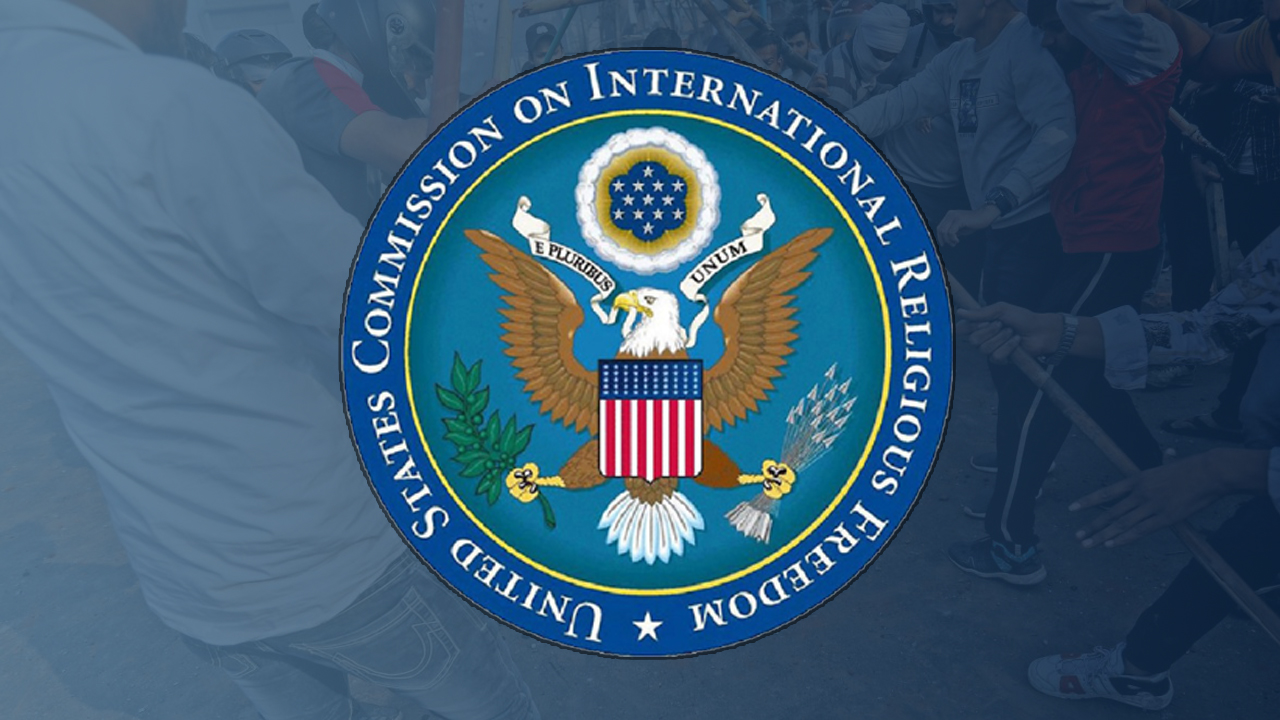Religious Freedom Violations, India’s Take on US Report
India has strongly criticized the report by the US Commission on International Religious Freedom (USCIRF), dismissing it as "biased and motivated

India has strongly criticized the report by the US Commission on International Religious Freedom (USCIRF), dismissing it as “biased and motivated.
The USCIRF’s findings, which claim that India’s record on religious freedom is continually deteriorating, have been rejected by the Indian authorities, who have urged the White House not to label the country as a “Country of Particular Concern.” The USCIRF, a federal government body in the United States that monitors violations of the fundamental right to freedom of religion or belief, has accused India of violating religious freedom for the fourth consecutive year. In addition, the USCIRF has recommended designating Nigeria, Syria, Vietnam, and Afghanistan as CPCs.

The USCIRF, a nonpartisan government advisory organization established by Congress in 1998, has issued a call to action in its most recent annual report. The organization is urging the US Congress to take steps to address the problem of religious freedom in India through a variety of measures, including hearings, briefings, letters, and Congressional delegations. Despite USCIRF’s repeated recommendations to the State Department since 2020, it’s worth noting that the State Department isn’t obligated to comply with USCIRF’s advice.
USCIRF’s latest report on India’s religious freedom reveals a bleak outlook, with the organization anticipating a further deterioration of the situation in 2022. In light of this, the US Commission has recommended that the Biden administration implement targeted penalties, such as asset freezes, on both Indian government organizations and individuals responsible for “serious violations” of religious freedom in the country. Furthermore, the USCIRF has suggested that Congress hold hearings on this issue and bring it up during bilateral discussions between the US and India.

It is widely acknowledged that minority groups in India, specifically the Christian and Muslim communities, are the most affected when it comes to violations of religious freedom. The report highlights several instances where religious freedom has been brutally attacked, including the implementation of anti-conversion laws, assaults on Christian places of worship, restrictions on Muslim women wearing the hijab or headscarf, mob lynchings fueled by alleged cow slaughter, and the systematic targeting of human rights advocates advocating for religious freedom.
The USCIRF has been consistently drawing attention to the mistreatment of religious minorities in India and has even attempted to send representatives on fact-finding missions in the country, but these efforts have been vetoed by the Indian government. In its latest evaluation, the commission stated that despite constitutional provisions that support secular ideals, the situation for religious freedom in India continued to deteriorate in 2022. According to the study, the Indian government has actively enabled and supported national and state-level policies that undermine religious freedom for minority groups.

According to Arindam Bagchi, the spokesperson for India’s Ministry of External Affairs, the Commission has persistently made similar statements, and India firmly denounces the “distorted portrayal of reality” that simply serves to “tarnish the credibility of USCIRF.”
He further implored USCIRF to gain a more comprehensive understanding of India, its diversity, and its democratic principles. Bagchi declared that the US Commission on International Religious Freedom has once again reiterated its biased and motivated remarks about India in its 2023 annual report. “We firmly refute such misrepresentations, which only serve to discredit USCIRF itself,” asserted Bagchi. “We strongly urge USCIRF to abandon such attempts and to acquire a deeper comprehension of India, its plurality, its democratic ethos, and its constitutional frameworks,” the official added.

In response to allegations made by a recent study accusing Indian officials of promoting assaults against followers of minority religions, the Indian government has defended its track record of religious tolerance. Meanwhile, India has criticized the United States for its own human rights violations. The US government, in its annual report on global religious freedom, has included a rare but indirect criticism of New Delhi, a rising ally, citing offensive statements made by Indian public figures and stories of discrimination against Muslims and Christians in India.
The Commission on International Religious Freedom of the United States, a self-governing federal institution, has frequently advocated for India to be categorized as a “blacklisted” nation. This stance has resulted in tensions between the two countries. Nevertheless, given the significant value of India as a strategic partner for the US in its efforts against China, it appears improbable that the State Department will pursue any punitive measures against India. According to the 2021 report on religious freedom worldwide, the previous year saw numerous attacks on members of minority communities in India, including deaths, assaults, and intimidation.
These included incidents of “cow vigilantism,” which involved attacks on non-Hindus suspected of trafficking in meat or slaughtering cows. With approximately 80% of India’s 1.35 billion population being Hindu, many Hindus view cows as sacred animals. Therefore, several states, under the control of Prime Minister Narendra Modi‘s Hindu nationalist party, have either enacted new laws against cow slaughter or have strengthened existing ones.
According to a recently released report, the government in power in India, which is led by Prime Minister Narendra Modi and has a Hindu nationalist ideology, has been accused of stifling voices that are critical of the government, particularly those from religious minorities and individuals fighting for their rights.
The government has reportedly employed various methods such as surveillance, harassment, destruction of property, and detention under stringent laws to suppress dissenting voices. Additionally, the government has targeted non-governmental organizations operating within the country. In the world’s largest democracy, all religious communities are constitutionally protected.
Ever since Mr Modi’s Hindu nationalist party took control in 2014, his government has faced allegations of eroding democratic principles. Criticism has been levelled at Mr Modi’s administration for its decision to prohibit a BBC documentary that raised questions about the prime minister’s handling of the 2002 Gujarat riots, which resulted in the deaths of over 1,000 individuals, predominantly Muslims. Furthermore, since coming into power, his administration has changed the names of over a dozen cities and removed sections of school textbooks that featured Muslim monarchs.

The Hindu nationalist government under Modi has faced censure for implementing several policies deemed discriminatory. During the report’s presentation on Thursday, Rashad Hussain, the US ambassador-at-large for global religious freedom, voiced concerns, stating that “certain officials in India are turning a blind eye or even condoning the increasing assaults on individuals and sacred sites.” The research indicates that the safety of religious minorities and the freedom to practice one’s religion are under threat worldwide, according to US Secretary of State, Antony Blinken.
Proofread & Published By, Naveenika Chauhan






